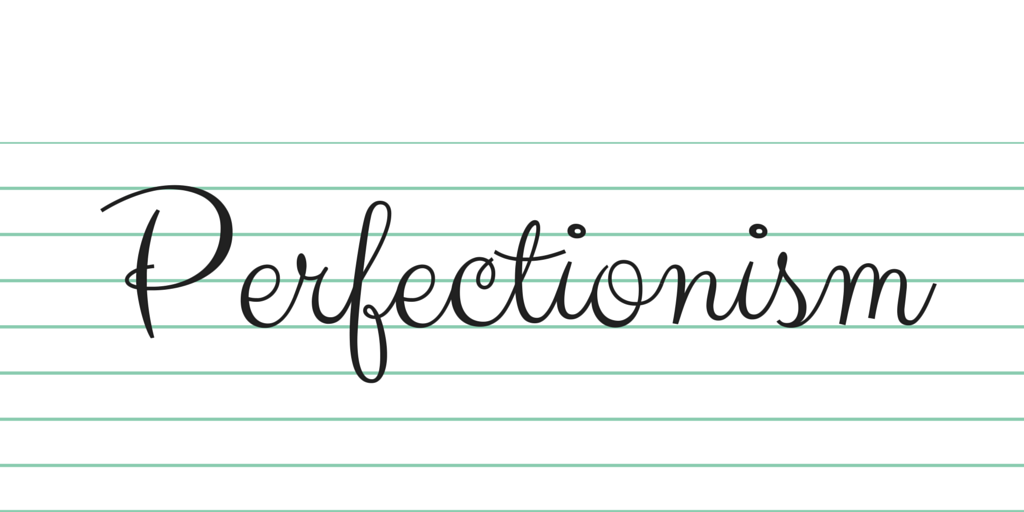By Jennifer de la Haye
“Perfectionism is the voice of the oppressor, the enemy of the people. It will keep you cramped and insane your whole life.” -Anne Lamott
Perfectionism has the tendency to lurk in our minds; it is a monster who strives to slash at our dreams and ambitions. Giftedness is often connected to high expectation, and sharp minds often become self-effacing when expectations are not met. I have watched gifted individuals cower, immobilized by the fear of failure or the dread of creating something less than hoped for. I have watched talented writers discard their ideas and gifted artists cast aside their tools because they heeded – oftentimes without realizing –the sibilant whisper of perfectionism.
I recently listened to a woman speak about her gifted son whom she found, curled into a fetal position on his bedroom floor, sobbing. She spotted a crumpled piece of paper next to him, and when she picked it up, discovered standardized test scores that placed him in the top 3% in every subject but one.
I know a young girl who, at 11, bypassed her teacher’s instructions to compose a two-page creative writing project for a writer’s workshop program by penning a fifteen-page short story about an introverted foster child’s struggles to integrate into her new family. That year, as a sixth-grader, she advanced to a district-wide writing competition. When she didn’t place, she cried and cried, dramatically proclaiming that she would “never write again.” The next year, she was awarded first place in the same competition. Her reaction was not joyful or celebratory; she was not excited for her victory – she was relieved, as though the award was an assurance that she was, well, okay. Like many gifted and high achieving students, she was especially hard on herself; to her, a “B” was an embarrassing reflection of her own inadequacy. By high school, she was so tired of the tumult in her mind that she abandoned academia altogether and found her identity in other things. I know her as an adult, and she says that she still feels an internal pull to write, but she is afraid.
The desire to perform well or to produce something worthwhile is a laudable thing. When this desire evolves into fear of a less-than-perfect outcome, rendering us incapable of proceeding, we must take measures to fight against the voice that works to unravel our momentum.
In his journal, Ralph Waldo Emerson recorded an observation on writing that might be translated into a commentary on many different types of gifts: “The good writer seems to be writing about himself, but has his eye always on that thread of the universe which runs through himself and all things.” Similarly, the good artist might paint his own translation of reality, but a brilliant work of art will arouse afflatus in viewers and artists across time. An excellent composer might create a piece of music that communicates the cacophony or the gentle melody of a personal experience, yet her song may inspire many, and like Emerson’s “thread”, connects her to the rest of the world through the product of her gift.
Our gifts, whether they involve writing, painting, math, engineering, cooking, counseling, or chemistry, are bound to our personalities, spirits, and histories. Although you aren’t the only talented poet, singer, or graphic designer, your voice, your perspective, and your style are unique. You are in possession of something specific you must offer unto the world. In the words of Dr. Seuss, “Today you are You, that is truer than true. There is no one alive who is Youer than You.” So I implore you: do not let shackles of perfectionism hold you back. Because the thread of the universe which runs through yourself and all things is part of a magnificent tapestry, and your contribution is vital.
The process of creativity is vulnerable; fear and anxiety are normal feelings attached to vulnerability, and we should never attempt to stifle our own feelings or the feelings of children we are trying to encourage. The words, “Don’t feel that way; nobody’s perfect!” or “You shouldn’t be so hard on yourself!” do not help. Instead of undermining the very real feelings of uncertainty we face, let us endeavor to fully experience the discomfort of moving forward through the fear, enduring, pushing past the voice of perfectionism, imparting our gifts to the world at large, and contributing to the ultimate tapestry of human creativity. Dani Shapiro, author of memoir and fiction, said, “I try to remember that the job — as well as the plight, and the unexpected joy — of the artist” (and the mathematician, chemist, teacher, aspiring astronaut, future doctor, ballet dancer, and singer) “is to embrace uncertainty, to be sharpened and honed by it. To be birthed by it. Each time we come to the end of a piece of work, we have failed as we have leapt—spectacularly, brazenly — into the unknown.”
Like this post? Sign up for our email newsletter to receive more gifted resources and information right in your inbox!

